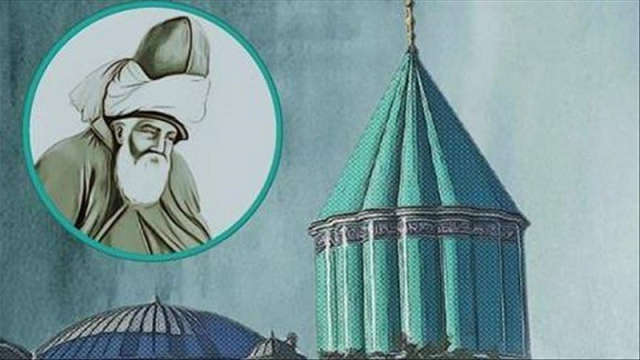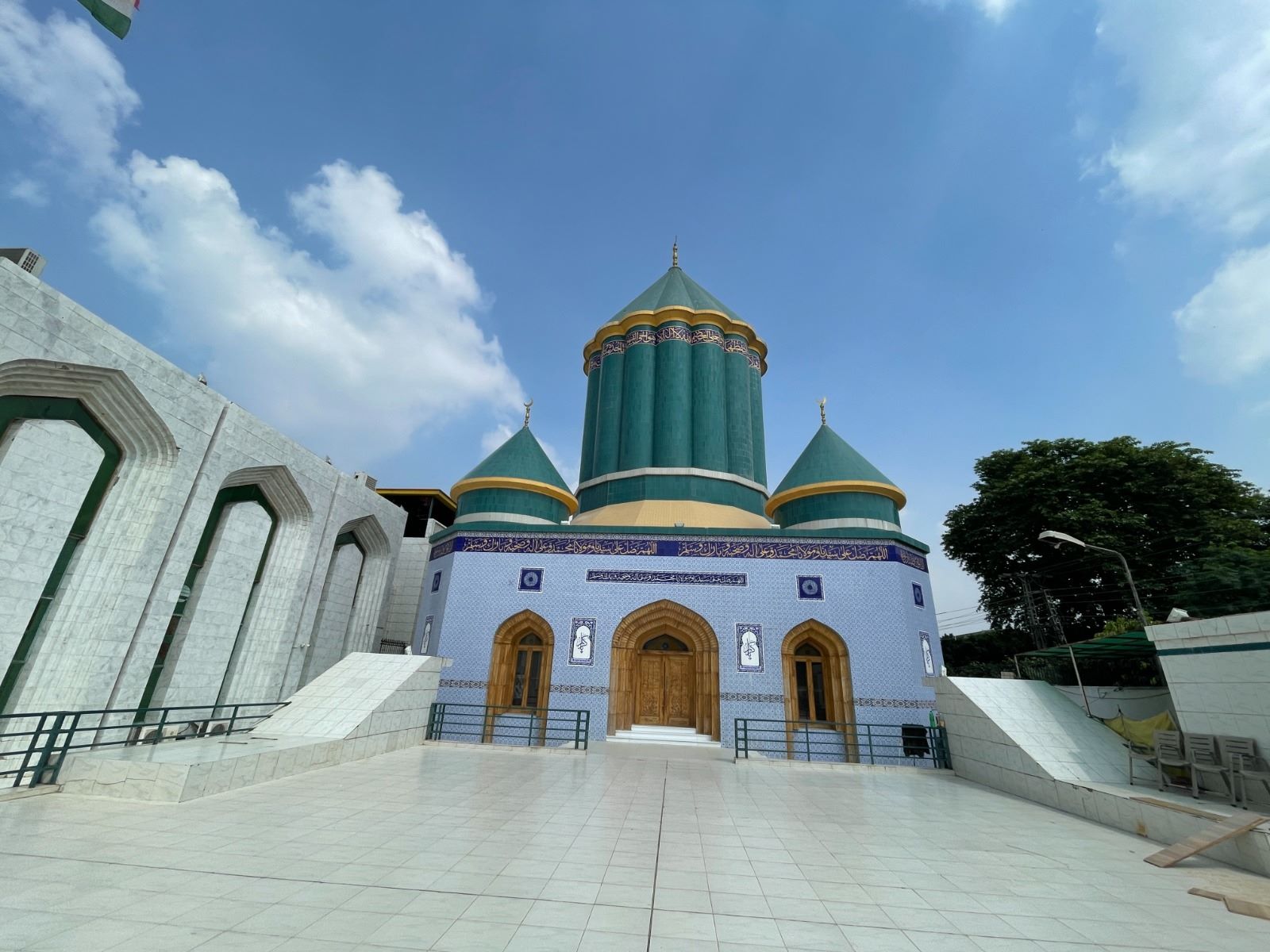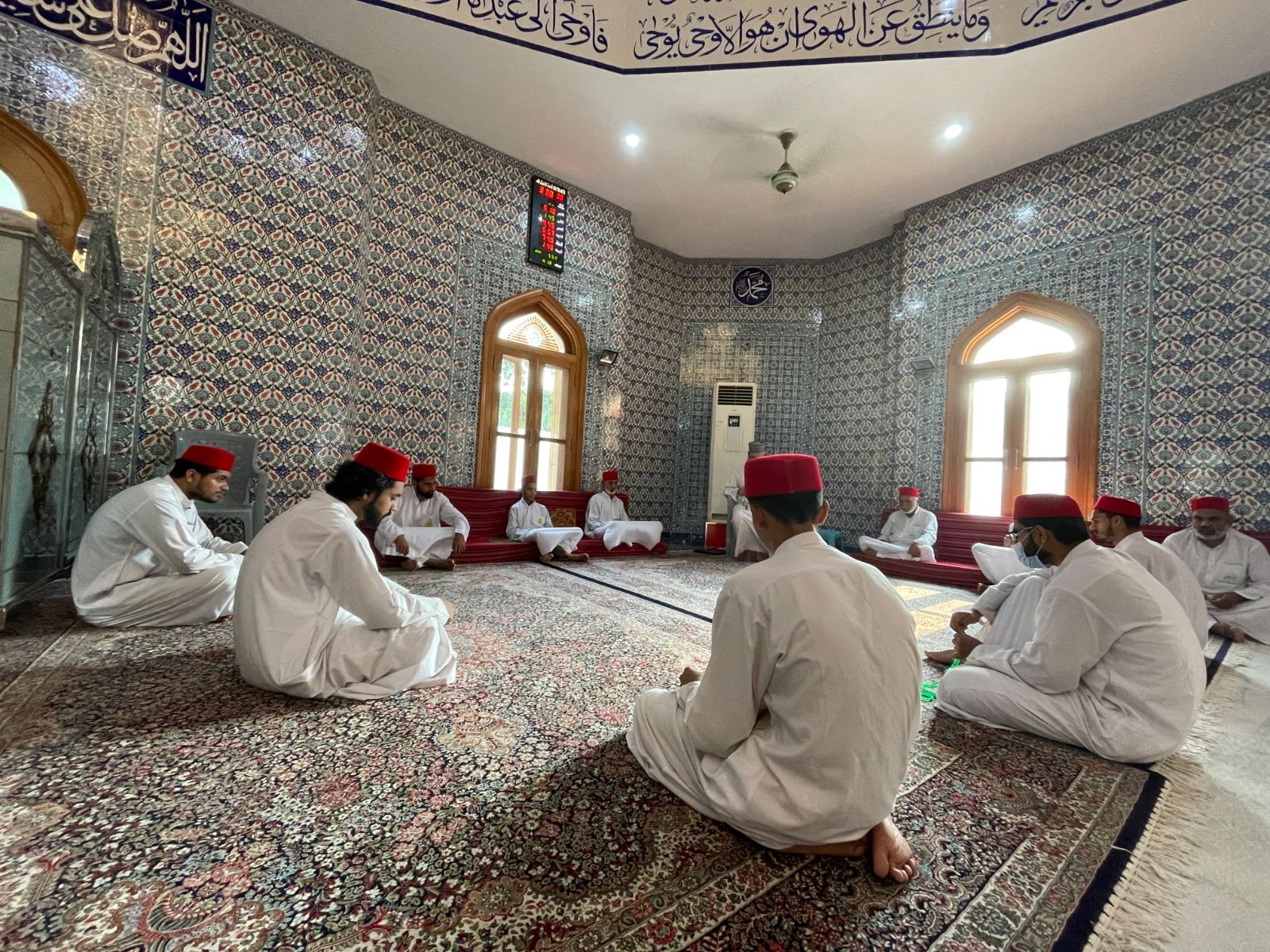From Konya to Lahore, people celebrate Maulana Rumi’s birthday with zeal
Minhajul Quran chief Tahirul Qadri explains relevance of Rumi’s teachings in modern life

On the eve of an important date, a special ceremony was arranged in Lahore by Minhajul Quran International, a non-governmental organisation working in over 100 countries around the globe.
The ceremony was held to celebrate the birthday of Maulana Jalaluddin Rumi, a 13th-century Sufi mystic, poet, philosopher, and theologian who was born on Sept 30, 1207.
A large number of men and women were gathered in front of Gosha-e-Durood, a special prayer room in the organisation that is a replica of Rumi’s tomb in Konya, a province south of Turkey's capital Ankara in the central Anatolia region.
In the English-speaking world, he is usually referred to as Rumi, referring to Anatolia, the place where he spent much of his later life. In various Middle Eastern countries and Turkey, he is commonly referred to as Maulana or some other variant of Mawlana meaning "our master."
Speaking exclusively to Anadolu Agency, the head of Minhajul Quran International, Shaykhul Islam Dr Muhammad Tahirul Qadri, said: “The structure, beauty, and calmness of Maulana Rumi’s tomb has always fascinated me. I feel spiritually affiliated with him. My father, Dr Faridud Din Qadri, also ardently loved Maulana, and especially in the last years of his life, he would read (Rumi’s poem) Masnavi fervently.”

Gosha-e-Darood, a prayer room in Pakistan which is an exact replica of Mevlana Rumi's tomb in Konya. PHOTO: AA
During the special ceremony, an audiobook by Tahirul Qadri on the physical appearance of Holy Prophet (PBUH) was launched.
“Greetings and salutations on Prophet Muhammad (PBUH) blessed personality is a great source of love and means of allegiance to him. This is the only action that is the Sunnah of Almighty Allah as well. That’s why I decided to raise this building so that people come, sit here, and in a spiritual atmosphere invoke greetings and salutations on the beloved Messenger of Allah,” said Qadri.
People by phone and emails send their requests to pray in the room and are later selected on a first-come-first-served basis in groups of six-seven people in one shift. By now, more than 4 billion salutations have been invoked.
The secretary of the prayer room Jawad Hamid said: “Gosha Nasheens (residents of the prayer room) recite Darood Shareef (a phrase in Arabic to compliment the Holy Prophet PBUH) 24/7 in eight-hour shifts. We have dedicated special rooms, mess, and laundry service for people who come from all over the country for 10 days and spend their time while learning spirituality.”

Students inside the prayer room, replica of Mevlana Rumi's Tomb. PHOTO: AA
The prayer room opened in 2007 with a total cost of $3.5 million.
“The cones of the pulpit are 85 feet in height from the ground level. The blue tiles on the wall inside the room are imported from Turkey and are handmade. Those are the same tiles used in Maulana Rumi’s tomb,” Hamid told Anadolu Agency.
The residents wear a specific dress, like a dervish, during their eight-hour shifts and also fast while praying.
“Like Rumi, I always want to spread the message of love and peace in societies and communities. If I can get inner peace, I will automatically get outer peace and turn my life into a paradise,” said Mohsin Rasool, a devotee reciting Darood Shareef.
Sufism in South Asia
A lot of people in South Asia are fascinated by Rumi and his ideas, poetry, whirling dervish, and companionship towards humanity.
Tahirul Qadri, explaining the attachment of people with Rumi, said: “Maulana is not limited to some specific age. He is a man of all ages. He calls people to the creator and the creation. He preaches love with humanity. Love and peace are gifts of God that bless you with eternity. That is how I relate Rumi to my current life while following the path.”



















COMMENTS
Comments are moderated and generally will be posted if they are on-topic and not abusive.
For more information, please see our Comments FAQ